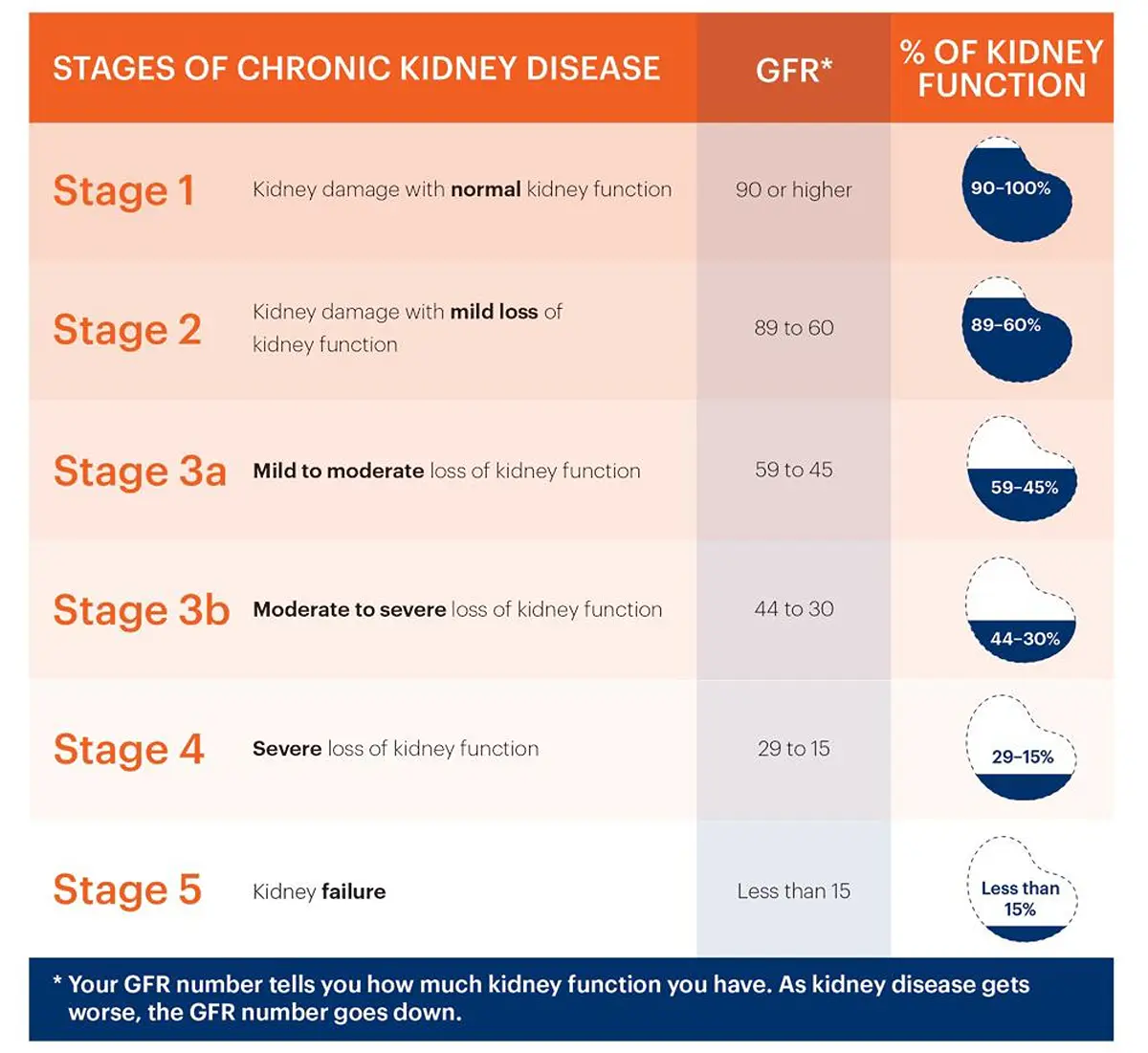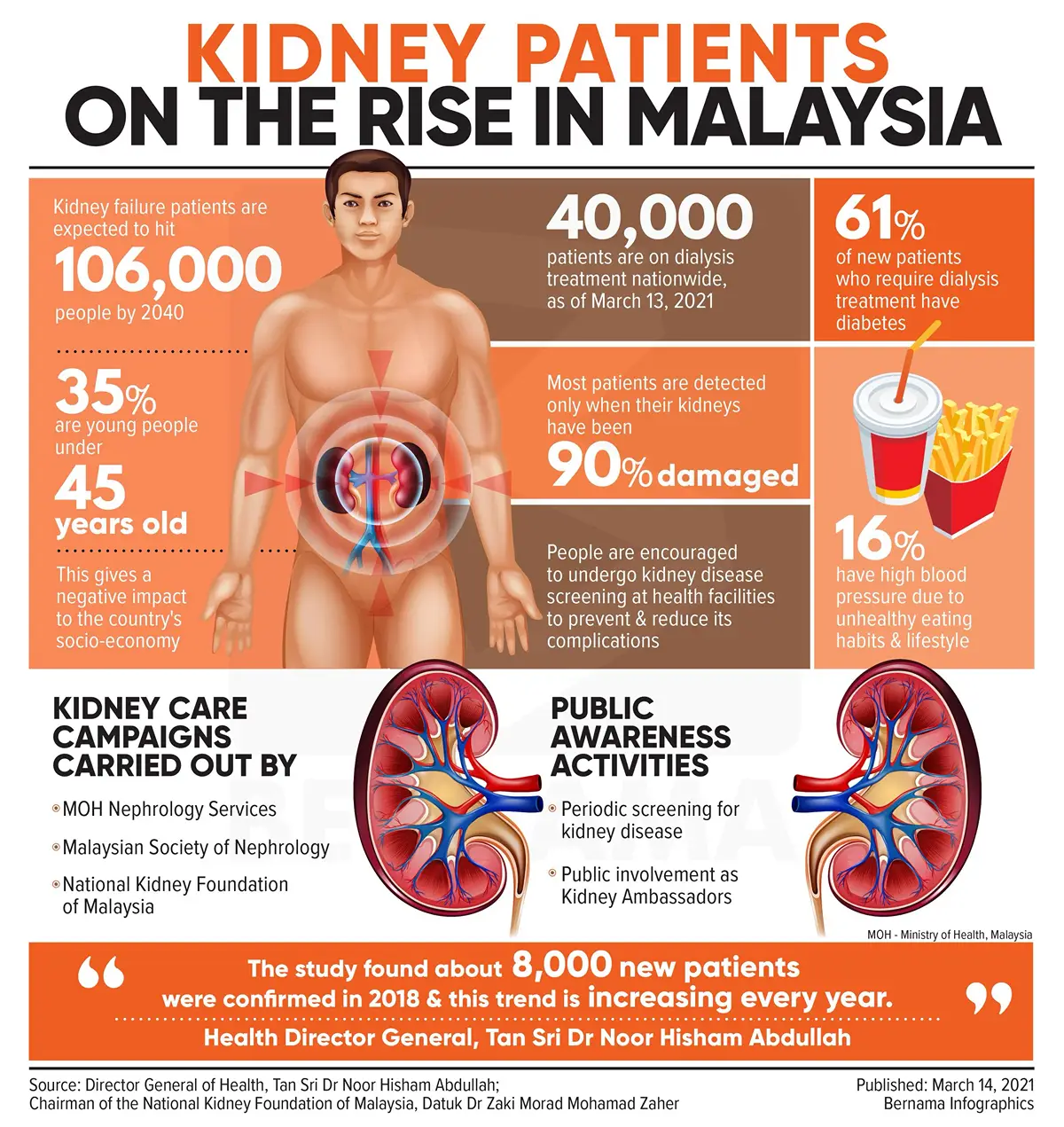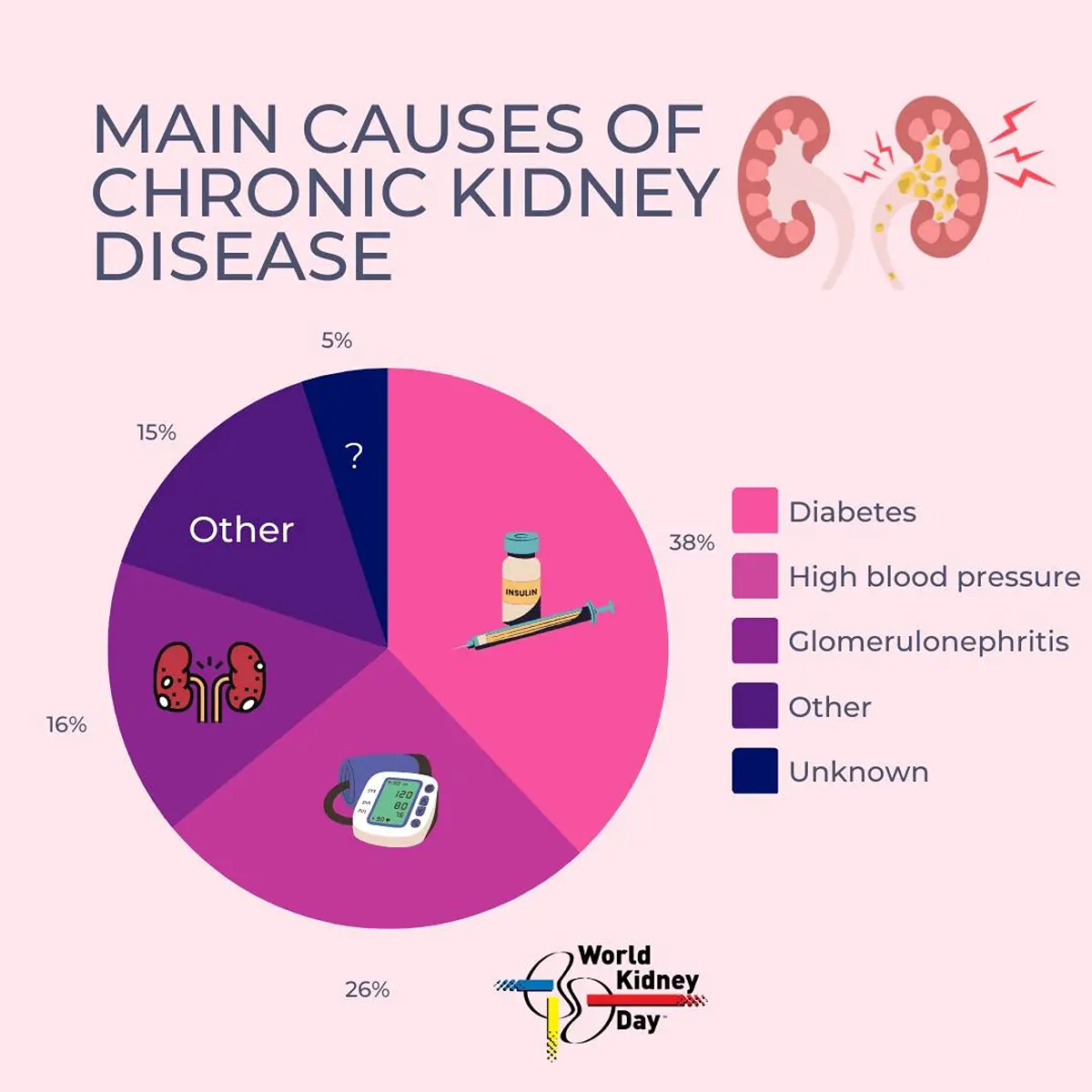
The kidneys are among the most vital organs of our body. The primary function of the kidney is to purify the blood by removal of waste products, and to balance our body fluids, minerals and chemicals. The kidneys also produce different hormones which help to regulate water and salt in the body, to maintain normal blood pressure control and to help in red blood cells production. The kidneys also convert vitamin D into its active form which is essential to keep the bones healthy.
Understanding the role of the kidneys, it is therefore when the kidneys are damaged, the patients will experience symptoms of uremia (buildup of toxins in blood), fluid retention, imbalance of electrolytes, high blood pressure, anemia (low hemoglobin level) and poor bone health.
Chronic kidney disease (CKD), or generally known as chronic kidney failure, is a 5-stage condition which there is progressive and irreversible loss of kidney function beyond a period of 3 months. A study conducted in 2018 showed that the prevalence of CKD in Malaysia was 15.48%, a significant rise from 9.07% in 2011. The commonest cause of kidney failure in Malaysia is related to Diabetes (69%), followed by hypertension and glomerulonephritis (inflammation of the glomeruli, the tiny filters in the kidneys). There are other causes including kidney stones with urinary obstruction, genetic kidney diseases or excessive use of kidney toxic painkillers or supplements. In a small number of patients, the cause can be unknown if the disease is presented late in the advanced stage.
Everyone should take good care of their kidneys. The unique tiny filtering units in the kidney, also known as “Nephrons”, cannot be replaced if lost. One of the earliest signs of kidney damage is the presence of protein in urine, a condition called “Proteinuria” or “Albuminuria”, which gives a foamy or frothy urine appearance. Nevertheless, early stages of CKD are usually with no symptoms, therefore getting a health check with blood and urine tests are the best ways of detection.
It is vital to have a regular screening about own kidney health. It is more so for those with higher risk of kidney problems – people with diabetes, hypertension, smoking, kidney stones, symptoms of kidney disease, family history of kidney disease, or history of chronic intake of painkillers. Kidney disease is a silent one, screening tests are best done early, before the occurrence of any signs and symptoms. Early detection of kidney disease allows early disease care and management, and there are currently many strategies and interventions to slow or delay the progression of CKD.
Common Myths and Facts about Kidney Disease
Fact: Unfortunately, the symptoms of kidney disease are often vague and nonspecific, making it a silent disease and most people only experience symptoms when they are in the advanced stages. Passing “foamy or frothy” urine can be an early sign of kidney disease, it is good to obtain an urine test to confirm if there is any protein leaking in the urine.
Fact: A basic check of kidney function is simple and inexpensive, involving a blood test (for kidney function) and an urine test (to screen for blood and protein in urine). An ultrasound scan of kidneys might be done to determine sizes and any structural abnormalities of kidneys if needed.
Fact: There are mainly 2 types of kidney failure. Acute kidney injury develops rapidly and may resolve with treatment of underlying cause. On the other hand, chronic kidney disease is a 5-stage condition which there is progressive loss of kidney function beyond a period of 3 months. There are currently many strategies and interventions to slow or delay the progression of the disease. With early detection and appropriate management, the risk of kidney function deterioration can be reduced by as much as 50%.
Fact: Generally, all herbal or nutritional supplements carry potential risk of side effects to kidneys which are the main filtering organs in our body, especially those supplements with ingredients that might not be regulated by the Health Ministry. Important drugs that can potentially affect kidney function include painkillers (under group of non-steroidal anti inflammatory drugs, NSAIDs) and certain antibiotics (e.g. aminoglycosides). The medical practitioners will normally ascertain your kidney function before prescribing these medications, and it is important to tell your doctor if you have diminished kidney function or are at risk of kidney disease.
Last but not least, what are the best tips for healthy kidneys?
There is no “magic kidney supplement” thus far. To maintain healthy kidneys, the best tips are as follow:
Tip #1: Stay fit and active! Adequate sleep, eat healthily (low salt, low fat, low sugar and rich fiber), exercise regularly (150 minutes a week) and maintain healthy weight (Body mass index 18.5 to 25).
Tip #2: Check and control your blood sugar and blood pressure. Many people are unaware that they have diabetes or high blood pressure, and these are the major risk factors for kidney damage. Early diagnosis of diabetes and hypertension, with good control, can help to prevent or limit the damage to kidneys.
Tip #3: Take appropriate fluid intake to keep yourself hydrated. Normally this means 8 cups, or approximately 2 liters of water per day for a healthy person.
Tip #4: Do not smoke. Smoking increases risk of kidney disease and kidney cancer.
Tip #5: Do not take over-the-counter painkiller/ anti-inflammatory pills regularly. Non steroidal anti-inflammatory drugs (NSAIDs) can potentially affect kidney function, even with just a few doses.





